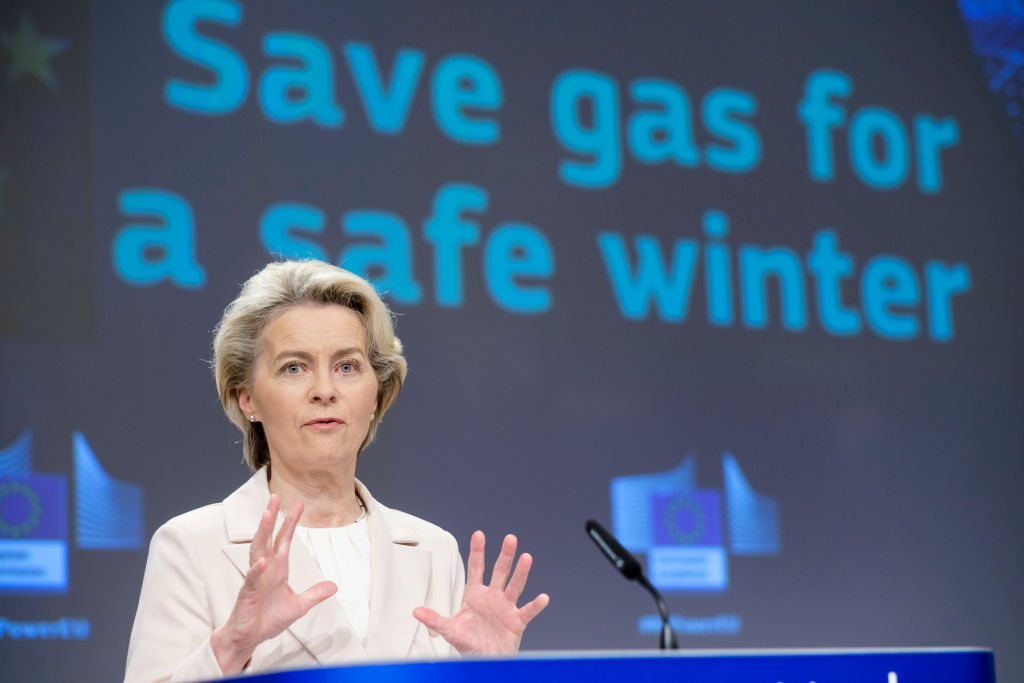
In recent years the identity of the European Union has come to be inextricably linked with the logic of crisis. The E.U. does not just face crises. It seems to be defined by them. In a way, it welcomes crises. It has turned danger into opportunity with many of its defenders arguing that crises can be a way to move forward.
Everything has been postponed for the moment of truth, the moment when a larger crisis would either force the E.U. to finally take a decisive step towards a more perfect union, or then enter a state of terminal decline. Over the past few years many have speculated about the specific form this larger crisis would take. It seemed to me obvious that it must be a geopolitical crisis in some sense because it was from the external environment that the sort of challenges the E.U. remains unprepared for could more clearly arise: challenges demanding a quick response or requiring a level of improvisation or adaptation. And so it happened. The war in Ukraine was the larger crisis.
It was an interesting moment of introspection and doubt in a second sense. Suddenly, we were no longer sure the problem was with the E.U. Was it the E.U. that created the dangerous dependence on Russian energy that now threatens to upend the European economy as a whole? Actually, no. It was mostly the German political and economic elites that ended up captured by the mirage of cheap Russian energy. The E.U. struggled unsuccessfully against the dominance of these elites, but it never made any secret what a bad idea it thought Nord Stream really was. Nor was it ever enamored with the French concept of a larger Europe including Russia, if only because the Kremlin despises the E.U. and wants to see it fail.
More from TIME
Consciences are slowly changing. In a recent trip to Prague I expected to find the usual skepticism about Brussels and supranational power. It was still present in some form, but most of my interlocutors were much angrier and much more suspicious about German and French power. With the center of political action now decisively geopolitical rather than cultural, Czech elites suddenly find themselves closer to Brussels than to Berlin. At least in Brussels one can discuss how to respond to the Russian threat. The E.U. thinks about the world in terms of large blocs. Germany is concerned with parochial economic interests, while France still dreams about French power and prestige.
Read More: Inside the Mind of the Most Powerful Woman in Europe
Above the anxieties of the present moment, new vistas are opening up. A political union in Europe was never going to be built on economic foundations. Europe will come together as a geopolitical union or not come together at all. And now, for the first time, geopolitics is taking over. Already in the decision to grant Moldova and Ukraine candidate status, a quantum leap took place. No one spent much time discussing whether Ukraine enjoys the economic conditions necessary to join the E.U. Under the circumstances it would have been a ludicrous condition. Instead, and more reasonably, we assumed that those conditions can be created in the future, provided Europe is able to ensure its own stability and security.
Relations between Brussels and Poland have improved. There are issues to solve but both sides agree on the fundamental question of what our enemies are. With Hungary there is no such agreement and in fact the Hungarian government is now entirely isolated in Europe, seen by almost everyone as a Kremlin stooge. The war has taught us to focus on the essentials.
The most difficult problem still to be solved is how to create in Brussels a common power that can be genuinely independent from French and German interests. The lack of such a power was responsible for Brexit, with Britain having concluded that inside the E.U. it would remain excessively dependent on its old European rivals in Paris and Berlin.
In the longer term, enlargement should be able to take us there. With Ukraine as a member, the simple combination of Polish and Ukrainian votes will exceed the German share. Have no illusions that this is the reason both France and Germany are looking for a solution to postpone Ukrainian membership, temporarily replaced with a different kind of arrangement President Macron called a “European Political Community.”
In the shorter term, we need new alliances between the South, Scandinavia, and Central Europe. But the balance of power is already shifting. You could see that in the recent proposal by the European Commission for an emergency power to declare a general Union alert and mandate that every member state shall reduce its national gas consumption. Germany not only accepted this will become a European competence. Under threat from a sudden energy collapse, it requested it. German vulnerability is a ray of hope for a future political union.
More Must-Reads from TIME
- Caitlin Clark Is TIME's 2024 Athlete of the Year
- Where Trump 2.0 Will Differ From 1.0
- Is Intermittent Fasting Good or Bad for You?
- The 100 Must-Read Books of 2024
- Column: If Optimism Feels Ridiculous Now, Try Hope
- The Future of Climate Action Is Trade Policy
- FX’s Say Nothing Is the Must-Watch Political Thriller of 2024
- Merle Bombardieri Is Helping People Make the Baby Decision
Contact us at letters@time.com